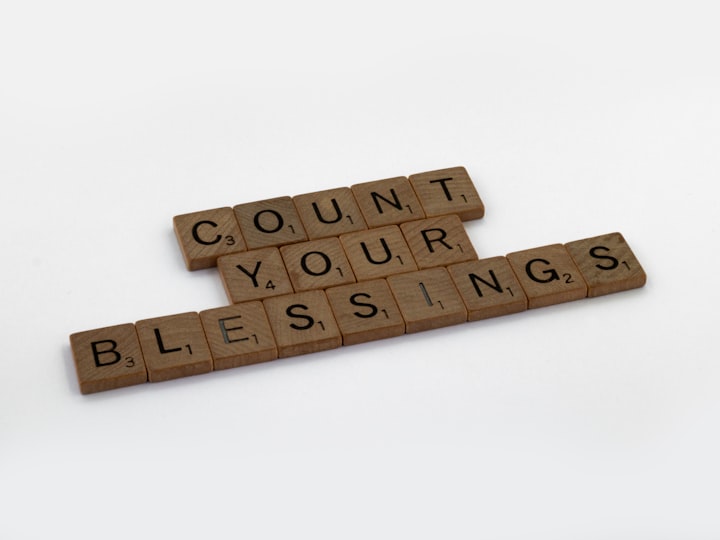Be Kinder to Yourself
Fostering kindness and inclusivity should be everyone's goal, but sometimes it's not so easy to accomplish until you've practiced on yourself...

One of the biggest challenges in my life (and, most likely, for many others), is finding ways to be nicer to myself. Being too hard on yourself can make every minor setback or mistake seem infinitely worse than it actually is, and after a while, it can feel like you really do deserve the negativity and discrimination that you experience in your day-to-day life. To make matters worse, chronic self-deprecation is a sure-fire way to become a negative, bitter, and overall less inclusive person.
In fact, studies have found that lower self-esteem (i.e. being less kind to yourself) tends to correlate with greater amounts of aggressive behaviours such as physical aggression, anger, hostility, and implicit and explicit aggression. Hence, it's clearly quite exhausting when your biggest critic is yourself, not just for you, but evidently for everyone else as well. So if one wants to create a better community with a more inclusive and welcoming atmosphere, then what better way is there do to this than to create a better YOU that is free from self-deprecation and negative thought patterns?
It may sound slightly selfish and self-oriented, and perhaps it is in a way, but being kinder to yourself can drastically improve your capacity to help others if done correctly, and so perhaps self-care is the opposite of selfish. This has been my approach on the matter for many years now, and while I must admit that I still have a long way to go, it's definitely helped me to make a lot of progress. So if you're looking to do the same, here are the everyday habits I've adopted over the years to help me be kinder to myself, and eventually, to others.
Practice Gratitude
Stop taking things for granted. It's easy to lose sight of what we have when we're always focussing on what we don't. After a while, a lack of gratitude can often lead to feelings of emptiness, hopelessness, and a lack of self-esteem because it seems like you never get to where you want to be or achieve the things you want to achieve. If it feels like everyone else always gets what they want except for you, it's easy to slip into resentful and negative behaviours.
There are a few ways you can encourage yourself to practice gratitude. For example:
- Write down a few tings you're grateful for in a journal everyday. This can be difficult at first, but after a while, you'll come to find that you actually do have a lot of things to be grateful for.
- If journaling isn't quite your style, then taking a few moments to rest and meditate over the things you're grateful for can be just as effective.
- Accept compliments. It's easy to brush things aside and be overly modest sometimes, but too much modesty can sometimes cause you to lose sight of what you really have. Take a moment to really accept and process a compliment next time you receive one, and be grateful for that skill, achievement, or attribute that you possess.

Rationalise Negative Thought Patterns
A lot of the time, negative thoughts can sneak into our minds if we're not paying attention and these thoughts can fester and spread into chains of other thoughts until they eventually become unbearable and you end up feeling, well, negative. Many sources refer to these thought patterns as automatic thoughts because they are relatively instantaneous, habitual and, above all, nonconscious.
The worst part about automatic thoughts is that they poison your perspective of the world, and can often lead to feelings of rejection and inadequacy, in addition to discouraging positive social practices. It's not uncommon to do things like assume your friend or colleague is incredibly mad at you when they don't say hello to you after walking into the room. There could be a MILLION reasons why they didn't say hello, but automatic thoughts can have you assuming the worst and hyper-focussing on the negatives.
Automatic thoughts don't stop there either, they'll have you bouncing from one negative thought to the next:
"...If they didn't say hello to me then they must be really mad. If they're mad then they must never want to speak with me again. Why would they? I'm a terrible person to work with. I'll probably get fired, then I'll get evicted because I won't be able to pay rent. Oh god I'm going to be homeless..."
But fear not, there are ways to stop these thought patterns before they spread into disaster, but it does take a bit of practice. In summary, the main approach follows a five step process.
- Identify the situation that lead to your initial negative thought. If we use the scenario above as an example, the situation would be your colleague not saying hello to you.
- Isolate the initial negative thought. Following on with the example, the negative thought would be that your colleague is mad at you.
- Define the reason for initially accepting this thought. You may have assumed this because when people have been mad at you in the past they have ignored you like your colleague did.
- Explore alternative causes for the event/situation that occurred. It's possible that your colleague just didn't see you because there were quite a few people in the break room at the time. You also haven't done anything (that you're aware of) that your colleague would be mad about.
- Redefine and rationalise the initial thought in light of the new information. Your colleague didn't say hello to you but they usually do whenever they see you. There were lots of people in the room at the time so it's likely they just didn't see you, especially since there's no apparent reason for them to be mad.

And there you have it - crisis averted. Ok maybe it's not quite that simple. I'll admit, this is not always an easy process, and for the first five, six, or fifty times you do this, it may be helpful to write everything down in a table as you go. I like to have a diary or journal handy for this but it's not always possible when out and about.
But with that said, I can tell you first-hand that once you manage to get your automatic thoughts under control, both you and the people around you will be much better off. Instead of wasting time spiralling down negative thought patterns, you can actually be doing positive things for your community without fear of judgement or 'making people mad'. It's liberating to say the least.
Cut Out Self-Deprecating Humour
This one is similar to the above point, but is also rather niche in it's own way. It's sad when I reflect on past conversations I've had, or when I scroll through old messages and wonder, 'Why was I so mean to myself?'. Self-depreciating humour, while seemingly harmless, can wreck havoc on your self-esteem and personal image over time. If you tell yourself (and others) that you're selfish, that you're not good enough, or that you're stupid every day, whether with humorous intent or not, eventually those things can become a reality.
In her 2019 Netflix show titled Hannah Gadsby: Nanette, Australian comedian Hannah Gadsby admitted that she had built her entire career on self-deprecating humour, until she realised how damaging it was, stating:
I don't want to do that anymore... Because, do you understand what self-deprecation means when it comes from somebody who already exists in the margins? It's not humility. It's humiliation. I put myself down in order to speak, in order to seek permission to speak.
I think watching her show really was the slap-in-the-face I needed to snap myself out of it. There is so much more to humour than self-deprecation, and being cruel to yourself for cheap laughs does more harm than good. We should be building ourselves up so we can lend a hand to others, not knocking ourselves down with every chance we get.
So enough with the self-deprecation. Make puns, tell knock-knock jokes, hell, whip out a dad joke every now and then if you have to, but stop throwing yourself under the bus to get a shy giggle from the crowd. You deserve better than that, and so do they.

It's Not Selfish to Take Care of Yourself.
If anything, taking the time to try and love yourself is perhaps the most selfless thing you'll ever do. Because ultimately, the pathway to fostering kindness and inclusivity starts with YOU, within YOU, and can only be achieved by YOU. After all, it's not going to be a 'kind and inclusive' community if you're not being kind and inclusive to yourself, right?
Bitterness, hatred and discrimination are a disease. You can either let them take over you, fester, and spread to others, or you can fight them, become stronger and help your community thrive in their absence. The choice is yours.
About the Creator
J. R. Lowe
By day, I'm a PhD student, by night.... I'm still a PhD student, but sometimes I procrastinate by writing on Vocal. Based in Australia.






Comments
There are no comments for this story
Be the first to respond and start the conversation.